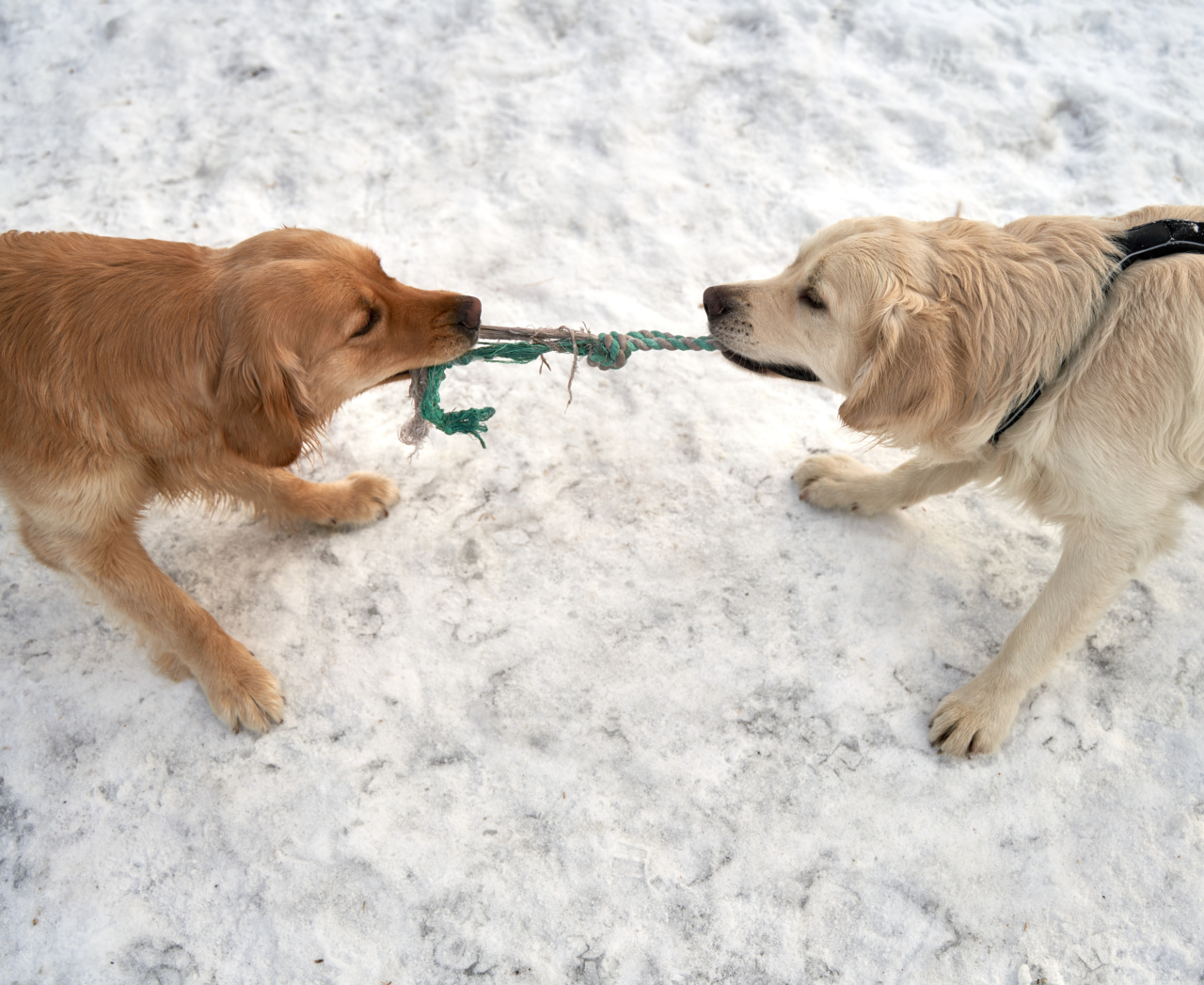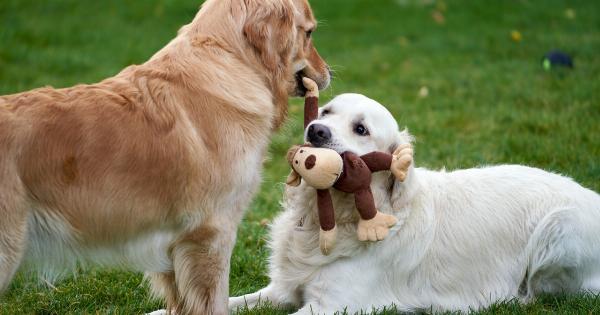Tug of war is a popular game that many dog owners enjoy playing with their furry friends. It can be a great way to bond with your dog and provide them with mental and physical stimulation.
However, there has been a longstanding debate about whether or not tug of war is harmful to a dog’s teeth. In this article, we will explore both sides of the argument and provide you with the information you need to make an educated decision about whether or not to engage in this activity with your canine companion.
The Benefits of Tug of War
Tug of war offers several benefits for both you and your dog. For dogs, it can be a fun and engaging game that allows them to release pent-up energy.
It also provides mental stimulation as they strategize and use their problem-solving skills to win the game. Tugging on a rope or toy can also help to satisfy their natural instinct to chew and tug, which can be particularly beneficial for puppies who are teething.
For humans, playing tug of war with your dog can strengthen the bond between you and your furry friend. It creates an opportunity for trust-building and can help you establish yourself as the leader in your dog’s eyes.
Additionally, it can be a great way to teach your dog important cues such as “drop it” and “leave it.”.
The Concerns about Tug of War
Despite the many benefits that tug of war can offer, some people argue that it may be harmful to a dog’s teeth. One of the primary concerns is that vigorous tugging can lead to dental injuries such as fractured or broken teeth.
This is particularly true if the dog is using inappropriate items, such as sticks or rocks, for the game.
Another concern is that tug of war can exacerbate existing dental issues. If a dog already has weak or damaged teeth, the strain of tugging on a rope can cause further damage or pain.
It is recommended to consult with your veterinarian if your dog has any dental conditions before engaging in tug of war.
Additionally, some experts worry that allowing a dog to win the game of tug of war may encourage aggressive behavior. It is important to establish rules and teach your dog to release the rope or toy on command to maintain control over the game.
Protecting Your Dog’s Teeth During Tug of War
While there may be some concerns about tug of war, there are steps you can take to minimize the risk to your dog’s teeth. First and foremost, always use a proper tug toy or rope designed for dogs.
These items are made with the safety of your dog’s teeth in mind, and they are less likely to cause dental injuries compared to sticks or other inappropriate objects.
Regular dental care is essential for maintaining your dog’s oral health, regardless of whether or not you play tug of war.
Brushing your dog’s teeth regularly, providing dental toys and treats, and scheduling regular dental check-ups can help keep their teeth strong and healthy. If you notice any signs of dental discomfort such as bleeding gums or bad breath, consult with your veterinarian as soon as possible.
It is also crucial to establish rules and boundaries for the game of tug of war. Teach your dog to release the toy on command and avoid allowing them to engage in overly aggressive or rough behavior.
You should always be in control of the game and be able to stop it at any time if necessary.
Alternatives to Tug of War
If you are still concerned about the potential risks to your dog’s teeth, or if your dog has existing dental issues, there are alternative games and activities that you can engage in to provide similar benefits.
Playing fetch with a soft toy or ball can provide both mental and physical stimulation without the strain on your dog’s teeth. Interactive puzzle toys and obedience training sessions are other great options to keep your dog engaged and entertained.
Conclusion
Tug of war can be a fun and beneficial game to play with your dog, but it is important to consider the potential risks to their dental health.
By using appropriate toys, practicing good dental care, and setting clear boundaries, you can minimize the risk of dental injuries during this activity. If you have any concerns about your dog’s teeth or oral health, always consult with your veterinarian for personalized advice.

























